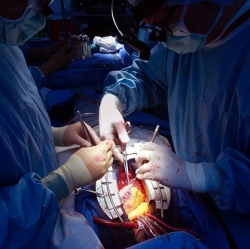
Hospital patients should have their kidneys checked to spot a potentially lethal condition affecting one in six of those admitted, say new guidelines.
The National Institute for Health and Care Excellence says the NHS in England could save at least 12,000 lives and millions of pounds a year if it follows its advice.
Acute kidney injury (AKI) is almost entirely preventable but kills up to one in every four sufferers.
Good hydration is key, says NICE.
Healthcare professionals should be monitoring their patient’s kidney function by checking they have enough to drink or have been given a fluid drip. They should also keep close tabs on how much urine patients are passing and may want to order blood tests to help them spot early warning signs of dehydration.
And they should review the medication patients are on in case it is drying them out and making matters worse.
NICE is concerned that too often these simple checks do not happen. A national inquiry back in 2009 found half of patients who died in hospitals in England and Wales from AKI had not received a good standard of care.
But NHS England says things have improved since then – there has been a big push to get best practice across the entire organisation.
Dr Mark Thomas, one of the experts who helped develop the guidelines, said: "Many hospitals and healthcare professionals have been doing an excellent job in watching out for acute kidney injury in their patients, but unfortunately this good practice is not seen everywhere.
